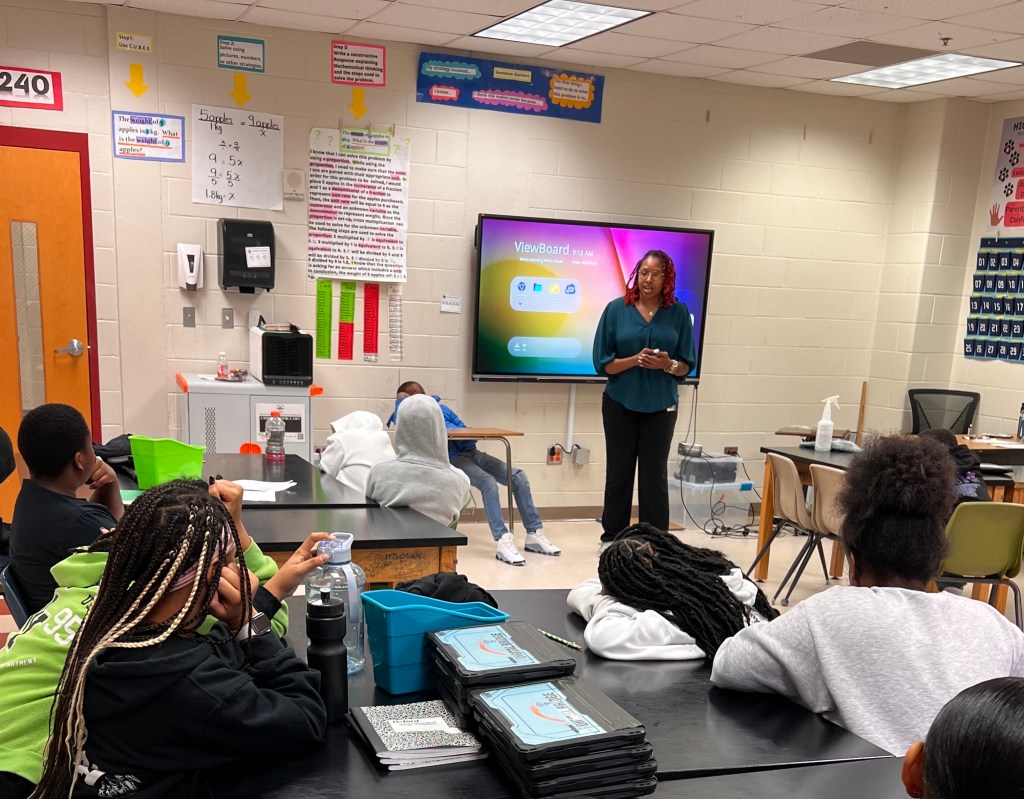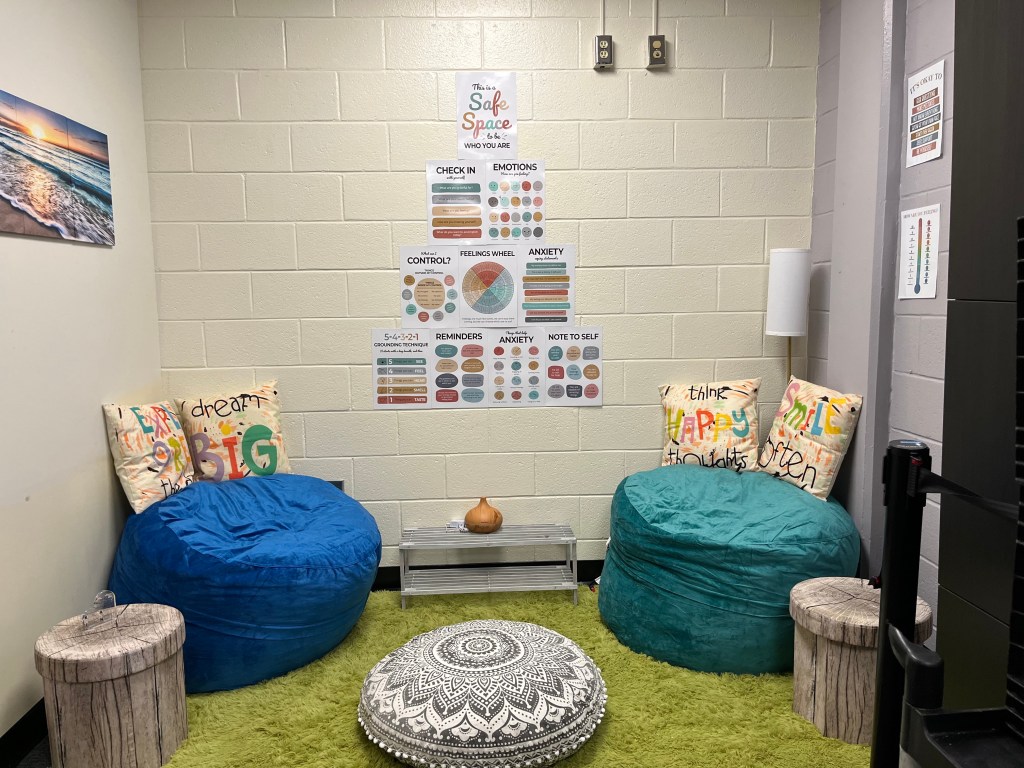
May is Mental Health Awareness Month and a lot of attention has been paid to young people, especially in the aftermath of the COVID-19 pandemic.
One organization trying to meet this issue where children are is CHRIS 180 through its Same-School Based Mental Health program.
“Our kids are still dealing with all the social challenges that adolescence is known for, but post-pandemic, all of these issues have magnified because of the deficits in social skills and increased mental health challenges we are seeing,” said Brittany Walters, LCSW, vice president of CHRIS 180’s School-Based Mental Health program.
In Georgia, 10.4% of children ages 3 to 17 reported anxiety or depression in 2020, up from 8.5% in 2016, according to the Annie E. Casey Foundation. In 2021, nearly 1 in 4 Georgia children ages 3 to 17 years old reported having emotional, behavioral or developmental conditions, also according to the Annie E. Casey Foundation.
More young children are having difficulty managing noise tolerance and showing regression in social abilities, which can look like hitting or tantrums. Teenagers who relied on social media to make friends are now dealing with severe self-esteem challenges when interacting with their peers in real life.
“It’s kind of like everybody in the world, or at least within youth, everybody’s just kind of ticked up a notch or two with mental health issues,” Walters said. “Those that were mild are now moderate. Those that were moderate are now severe. Those who had never had any challenges with anxiety now I have a tinge of anxiety.”

Years ago, CHRIS 180 set up brick-and-mortar buildings throughout the city to provide therapeutic services, skills-building groups, and after-school programs. But in 2013, it became evident there were many barriers for students and families to get to their therapy sessions at the facilities, Walker said.
“Whether it was transportation or a caretaker’s job schedule, there were so many issues preventing many of our kids and our clients from accessing the services they desperately needed,” she said.
The organization pivoted and decided to find a way to go to where children are — at school. In 2013, CHRIS 180 formed its School-Based Mental Health program to embed therapists into schools. The first school it partnered with was Peachcrest Elementary in DeKalb County.
CHRIS 180’s School-Based Mental Health program grew fast with federal and local grants and philanthropic dollars. In 2023, the organization partnered with 81 schools in Clayton, DeKalb, Fulton County Schools, and Atlanta Public Schools.
In 2023, a team of dozens of therapists at the schools counseled 2,091 students in 36,253 sessions, Walker said.
The program that puts therapists in the schools to become part of the community and counsel troubled students enables CHRIS 180 to “treat the entire school community as our client,” Walker said.
It gives therapists opportunities to support initiatives like Suicide Prevention Month, anti-bullying initiatives, violence prevention initiatives and ADHD Awareness Month study skills, for example.
“Not only are we working with the 25 to 40 kids that really need that extra support throughout the year, but we’re also treating all 1,800 of the student body and equipping them with tools that can help them be as successful as possible,” Walker said.
To call for information on CHRIS Kids’ School-Based Mental Health or any of its other programs, call 800-896-4106.
